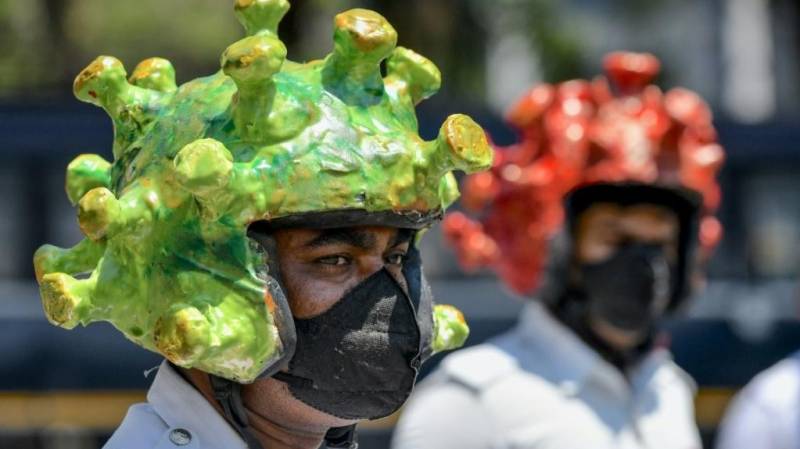Pandemic pranks off the table on April Fools' Day

Stay tuned with 24 News HD Android App

It may be the global day for pranks but with the world under assault from the deadly coronavirus pandemic many governments on Wednesday were warning against virus-themed April Fools' jokes -- some even threatening jail.
The April 1 tradition sees families, web users and corporations embrace practical jokes. But few are in the mood as the global death toll mounts and billions remain under some form of lockdown.
Google, a company renowned for its elaborate annual stunts, told its employees it would "take the year off from that tradition out of respect for all those fighting the Covid-19 pandemic," according to an internal email obtained by Business Insider.
The deadly outbreak has already been accompanied by a deluge of online misinformation, making it harder for governments to keep their citizens safe. Some are now threatening jail for virus pranks.
Taiwan, which has been held up as a model for how to tackle an outbreak, warned people who spread false rumours that they faced up to three years in jail and a TW$3 million fine ($100,000).
"On April Fools' Day we can exercise our sense of humour if we have to but we can't make jokes on the pandemic to avoid breaking the law," President Tsai Ing-wen posted on Facebook alongside a photo of one of her cats. "I wish everybody not only a humorous but also healthy and safe April Fools' Day."
The island's health ministry has also been using an official "spokesdog" called Zongchai to make public statements. "Zongchai asks you not to make any pranks on the outbreak. Please be considerate to the frontline workers on epidemic prevention," one post on the ministry's Facebook page said on Wednesday next to a photo of the popular shiba inu.
Thailand was taking a similarly hard line, threatening up to five years in jail. "It's against the law to fake having COVID-19 this April Fools' Day," the government said on Twitter.
"There may be people who do not have good intentions... who may use April 1 or April Fools' Day and assume they will not face legal action," Krissana Pattanacharoen, deputy national police spokesman, told reporters on Tuesday.
In India, where disinformation -- especially on Whatsapp -- remains a pervasive problem, politicians made similar appeals. "The state govt won't allow anyone to spread rumours/panic on #Corona," tweeted Maharashtra state's home minister Anil Deshmukh.
"We urge citizens to verify information and only share messages from trusted sources and not fall for fake news," Pranay Ashok, a spokesman for Mumbai Police, told AFP, adding that anyone found spreading fake news would be prosecuted.
Many well-known brands with a prior track record of jumping on the annual bandwagon were steering clear of the tradition this year.
James Herring, from London-based PR agency Taylor Herring, had the following warning. "Tip for any PR agencies planning an April Fools Day stunt," he wrote last week on Twitter. "Just. Don't."'
